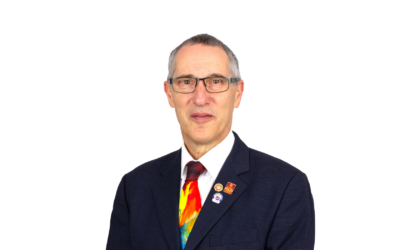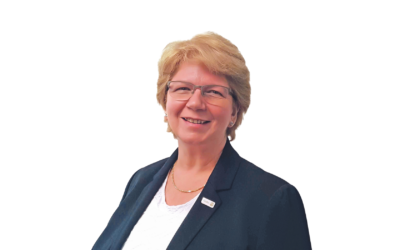At the 2023 Rotary International Convention in Melbourne, I asked all Rotary members to become champions in our effort to illuminate mental health needs near and far.
This includes helping one another feel more supported, advocating for mental health services, and building bridges with experts in the field to expand access to treatment.
Listen to this article
It’s an important task and a big ask. But it’s also something that should feel familiar to every Rotary member — because everything we do is in the spirit of caring, giving, friendship, and compassion, and has been from the beginning of our organisation.
We’ve grown into an amazing global network of 1.4 million interconnected community leaders — leaders who share a deep commitment to doing good in the world. But what makes Rotary powerful isn’t just what we do for the communities we serve.
We also support and empower each other, by creating a safe space for our members to bring their whole, authentic selves. We show each other comfort and care. These connections are deeply meaningful.
The U.S. surgeon general recently declared loneliness a public health epidemic. Dr. Vivek Murthy said, “We must prioritise building social connection the same way we have prioritised other critical public health issues such as tobacco, obesity, and substance use disorders.”
I am proud of what Rotary has done across generations to build those kinds of social connections — and this magazine focused on loneliness and what Rotary can do about it in its June issue.
Mental health care fits comfortably within several of our areas of focus.”
Our worldwide community and our foundational value prioritising Service Above Self makes Rotary a powerful global advocate for mental health.
A recently published study by Ohio State University found performing acts of kindness was the only one of three mental health interventions tested that helped people feel more connected to others. Study co-author David Cregg said, “Performing acts of kindness seems to be one of the best ways to promote those connections.”
This research suggests support for what we’ve known all along — that doing good helps transform not just the communities we serve, but it also transforms us. As we put a greater focus on mental health, let’s not think of this effort as something new to Rotary, but rather as something we can do better and as a result have a greater impact on ourselves and the people we serve. We are not starting this effort from scratch.
The Rotary Action Group on Mental Health Initiatives has been focused on these kinds of issues for several years — and we will be looking to members of that group for leadership as we continue to build awareness.
Mental health care fits comfortably within several of our areas of focus. As of May, there are 41 global grant-supported projects with a mental health focus. Many of them have tremendous promise, and we will be highlighting them in the months ahead.
So let’s work together to erase the stigma associated with emotional wellbeing, raise awareness of mental health needs, and improve access to preventive and interventional mental health services.
Together, we will Create Hope in the World.
Read the in-depth interview with Gordon from this month’s Rotary m


























































